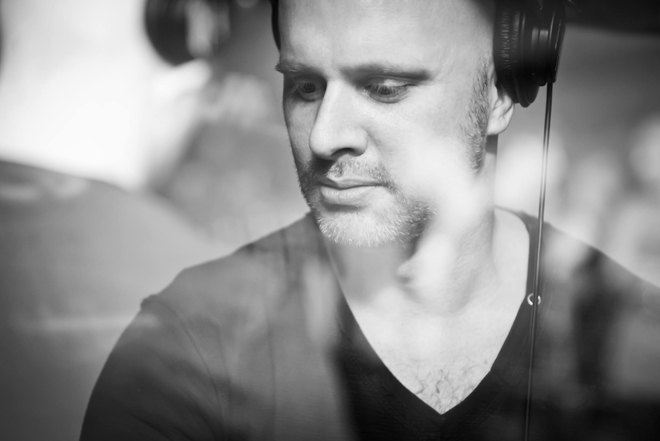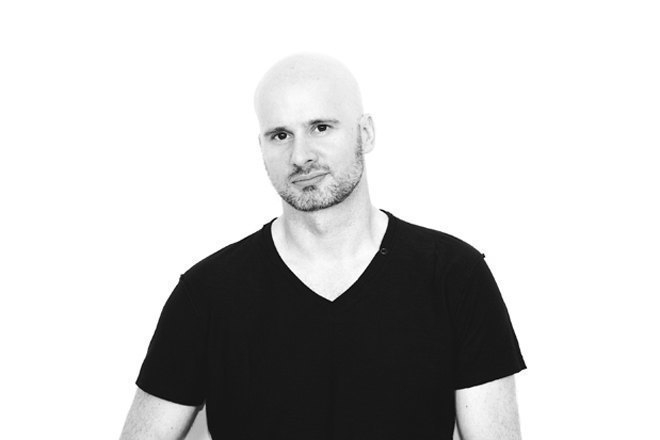Introducing Underground Essentials by Kimball Collins
We talk to Kimball Collins about how he finds tracks for Underground Essentials every week

There is SO MUCH MUSIC floating around in the Internet. And maybe there is just too much of it. SoundCloud says that users upload 12 hours of content every minute, and while that’s great and all in terms of the accessibility and variety of music available, it makes for a clusterfuck of music for the discerning music lover, or DJ, to sift through. The vastness of the Internetosphere also means that a lot of the really good stuff gets missed because while it’s accessible enough and within reach, it’s still sometimes hard to find and also life is hectic and most people just don’t have the time or the energy to explore all the hidden pockets of the Internet.
Well when you combine free time with a fervent passion, decades of experience and an intelligent ear, you’ve got Kimball Collins who is the man behind Underground Essentials by Trust. Underground Essentials is a weekly roundup of five of the best tunes in the world of underground electronic music according to Kimball.
We think he’s perfect the job because he’s a got a wild reputation for his borderline dangerous obsession with music, which he wholeheartedly admits to and says it’s inspired by a passion in looking for the next great sound, producer, remix, or single.
Kimball spends at least two hours every day searching for music online, which is basically a daily part time job he says, but this way he doesn’t miss any releases or previews of upcoming releases. Then he chooses a cross section of five tracks that he thinks will be making waves on dance-floors around the world, from deep house to techno, while focusing on today’s most notable, but not always well-known, producers and labels.
The seasoned DJ has also been a vanguard for the underground music scene since gravitating to it during the unforgettable and now almost mythical 90s warehouse era, where he played alongside DJs like Sasha. Kimball was also one of the first American DJs to ever play at Ministry of Sound in London.
So even in the very beginning stages of Mixmag Asia, we knew we had to use him and thus Underground Essentials was born, delivering to you five tracks every week that you might not find on many charts, but you’ll find them on ours.

Everyone keeps telling me how perfect you are for this series because of your rather intense and passion for music and ability to dig for it. Where is this drive coming from?
I have been chasing the new music dragon since the age of 14, when I started buying vinyl to bring to the DJ at a teen club I frequented in the mid-eighties. I realized shortly after this that I was having quite a bit of success picking what were soon to be some of the next big tunes on the dance-floor. From there it was first a vinyl habit of epic proportions and now onto the digital world of hard drives full of WAVs and MP3s.
Explain your process of finding and selecting music?
In the pre-digital era it was crate digging, record shopping, and promo mailing lists. I’m sure that me and many of my fellow vinyl veterans spent more than our fair share of income on buying vinyl from many different shops, and some were destined to be classics but most were not so it was quite a expensive habit to feed. I would also use charts from sources like Mixmag, DMC and other industry publications.
Nowadays I use Resident Advisor, music blogs, SoundCloud, Mixcloud and Facebook music and artist pages, as well as daily releases via Beatport, Traxsource, and Juno. I follow loads of labels and artists and refer to feeds from the above-mentioned everyday. With all the music out there these days, it’s basically a daily part time job just trying to keep up and preferably stay ahead of the releases of familiar artists/labels, and on top of that finding new ones as well.
How long does it take you and how many blogs and such must you follow to be fully in the loop with new music?
I am following more than 750 artist and labels on SoundCloud alone, and several hundred on Facebook as well. I usually spend about a minimum of two hours a day making sure I don’t miss any releases or previews of upcoming releases. It’s a bit overwhelming at times with all the new music and if I miss a day or two it’s quite a chore to catch up. But my obsession and passion for finding new music keeps me going, especially when I find that one track and or new producer that helps to keep me inspired and motivated.
Since the hunt for music began for you before the digital revolution and in record shops, while it’s obviously makes DJs lives easier, what are the drawbacks to digitalization?
The one main drawback for me would have to be not being able to thumb through my crates/boxes of vinyl to pick the next track I would play. I miss having some sort of identity and tangibility to choosing my tracks. Digital formats from computers or USBs seem a bit ambiguous to me. I also miss the feeling of touching and cueing vinyl, it feels like I have more connection to the music in vinyl form. The other more general concerns albeit minimal to me personally are issues regarding sound quality. I would have to agree with many purists that vinyl does feel warmer to me. That being said, I don’t miss all the back problems/aches related to carrying firstly crates then onto boxes and record bags for all those years.
You DJed through the famed warehouse era and are still very active today, would you say your musical selection today is more influenced by your history as a DJ throughout those historical days or more by what is popular today?
I always want to stay ahead or at least current on today’s sound, as that’s what keeps me inspired and feeds my need to move forward along with the music, but I feel my history is an added bonus that helps me appreciate those tracks that reflect the past as well.
Your resume is quite extensive, mind-blowing actually. How does someone with your credentials end up doing local gigs in Thailand and not touring the world?
I basically became burned out with the traveling just about every weekend for more than a decade; most weeks were Friday to Sunday with the occasional Wednesday and or Thursday as well. Being based in the South East (Orlando) I had to fly to just about every city across the United States with the occasional international shows as well. I began to develop anxiety issues associated with traveling and felt it was best to take a step back from the traveling aspect of the job, but the problem with that is you basically have to fly to get just about anywhere in America and because of that I decided to just take a step back overall. I always wanted to settle somewhere in Asia and one thing lead to another – I wound up in Bangkok.
Many DJs get into the business with the intention of ‘making it.’ What was your reason for getting into it?
Right from the beginning I never looked at DJing as a job but something I was fortunate enough to do in order to share my passion for new music with others. My first paying gig was in 1987 for $20 so you can imagine there was no financial motivation. I had to work two part time day jobs on top of three to six nights a week of DJing just to keep up with my vinyl addiction. I never really got ahead but it didn’t matter since I had never looked at it as a business.
As far as ego/fame were concerned, during that time many people had no idea who or where for that matter the DJ was in the club, or cared really. On one occasion I even remember people trying to order drinks from me and asked what was I doing standing there if I wasn’t a bar. Not a big ego boost to be sure. There was no real recognition until the early 90s as far as I could tell. I think many of the veterans if not all did it for the passion they had in sharing their music and their craft with others, and in the process they were able to convert some patrons and club goers to the underground music scene.
Easy but important question to wrap it up. Underground music has become not so underground anymore, but this feature is called Underground Essentials so in your opinion, what is and what defines ‘underground music’ today?
Music by producers / artist who I feel are working hard to push music forward and focus on labels as well. Underground is where the music happens first before it gravitates to the more mass appeal of the mainstream dance music.


